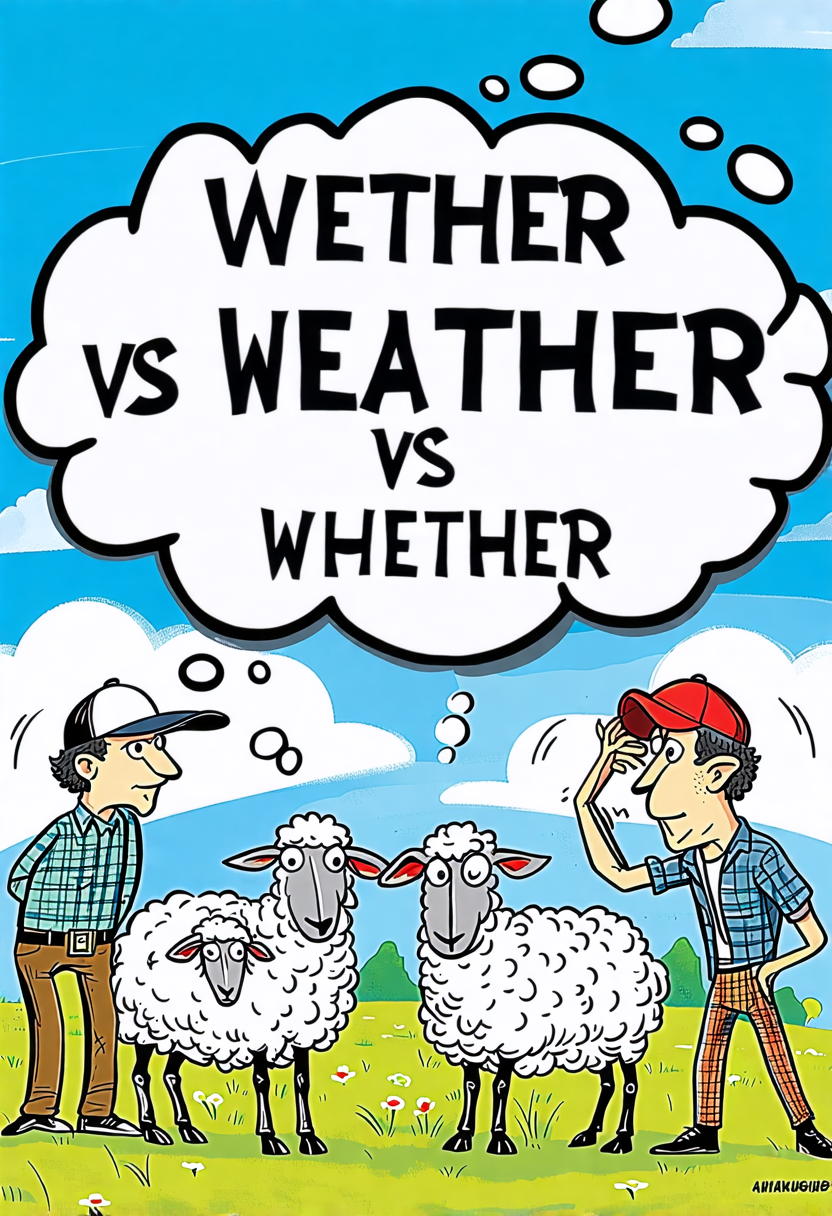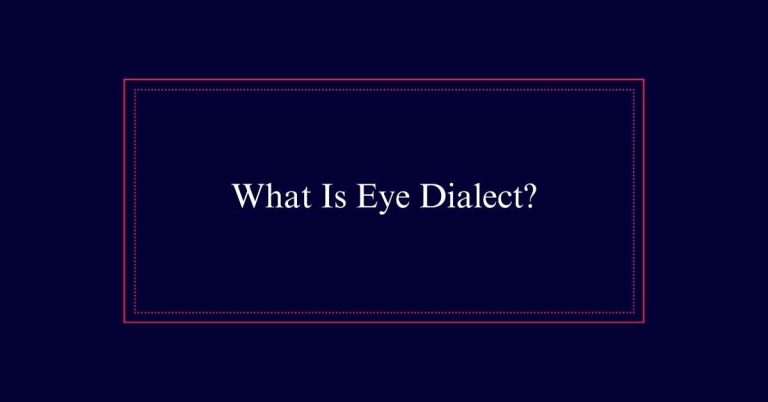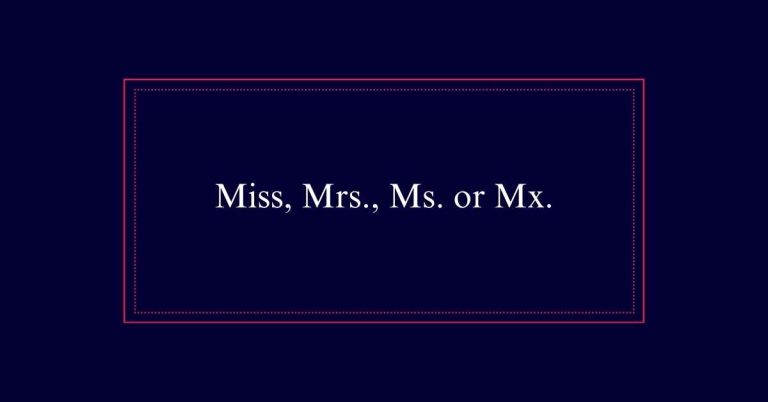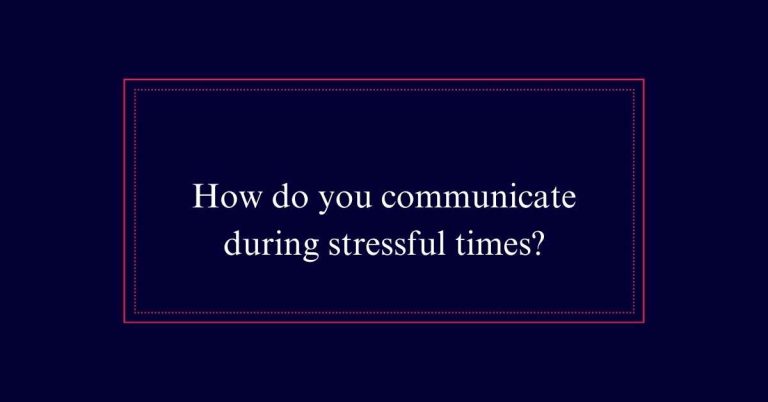Wether Vs. Weather Vs. Whether
“Wether,” “weather,” and “whether” are often confused but have distinct meanings. “Wether” refers to a castrated ram or goat, commonly used in livestock management for controlling breeding and behavior. “Weather” denotes atmospheric conditions, such as rain, sunshine, or snow. “Whether” is a conjunction used to introduce alternatives or options, often seen in questions or conditional statements. Misusing these terms can lead to misunderstandings.
Definition of Wether
A wether is a ram or goat that has been castrated at a young age. This term is commonly used in livestock management. Castration is performed to prevent breeding and to manage the behavior of the animal.
Wethers are often easier to handle and can be used for purposes such as wool production or meat. In shepherding, a bellwether is a wether with a bell attached to its neck, leading the flock.
The term ‘bellwether’ has evolved to describe something or someone that sets a trend or indicates future developments.
Bellwether Explained
The term ‘bellwether’ originally comes from a practice in shepherding where a bell is attached to the lead sheep or goat to guide the flock. This lead animal is known as the bellwether. The sound of the bell helps other animals follow, making the bellwether a critical guide.
Over time, the term has evolved beyond its agricultural origins. Today, ‘bellwether’ refers to an indicator or leader in various contexts. For instance, in politics, a bellwether state is one that often predicts the overall outcome of national elections. In business, a bellwether company might set trends for an entire industry.
Usage of Whether
In contrast to ‘bellwether,’ the term ‘whether’ serves as a conjunction used to introduce alternatives or choices. It helps in forming questions or presenting scenarios. For instance, ‘I don’t know whether to go or stay.
- Expressing Doubt: ‘She is unsure whether to attend the meeting.’
- Presenting Alternatives: ‘We need to decide whether we will drive or take the train.’
- Conditional Statements: ‘Whether the weather is good or bad, we will proceed.
‘Whether’ is distinct from ‘wether,’ which refers to a neutered goat or sheep, and ‘weather,’ which pertains to the state of the atmosphere.
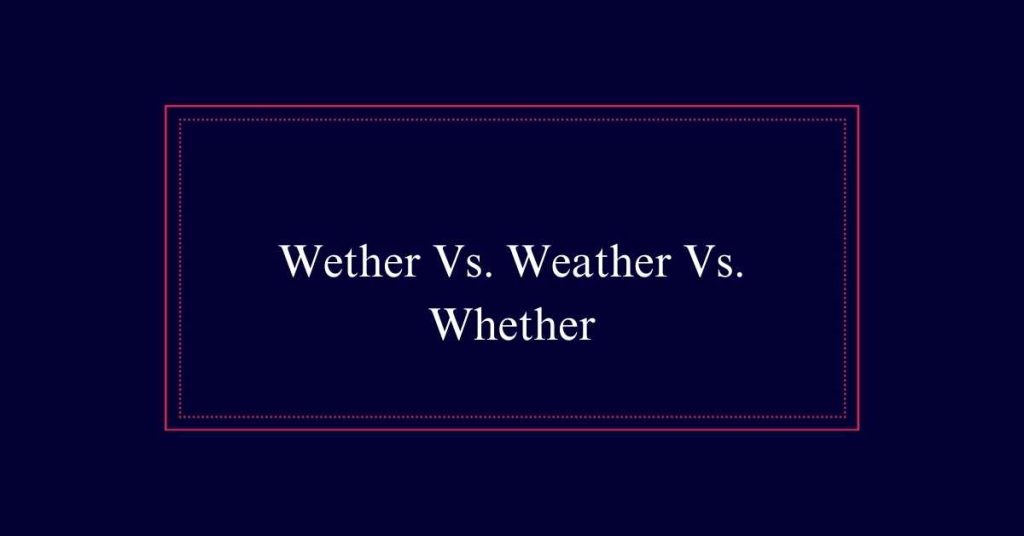
Distinguishing the Terms
Understanding the distinctions between ‘wether,’ ‘weather,’ and ‘whether’ is essential for clear and effective communication.
‘Wether’ refers to a castrated ram or goat, a term primarily used in livestock management.
‘Weather’ pertains to the atmospheric conditions at a given time, such as rain, sunshine, or wind.
‘Whether’ is a conjunction used to introduce alternatives or choices, as in deciding between two options.
Confusing these terms can lead to misunderstandings in both spoken and written contexts.
Mastering their correct usage not only improves clarity but also demonstrates linguistic precision.
Recognizing and applying these differences guarantees that your communication remains clear, professional, and effective.
Understanding Weather
Weather encompasses various atmospheric conditions, such as temperature, humidity, and precipitation. These elements collectively determine the climate of a region. Understanding weather is vital for various sectors, including agriculture, aviation, and daily planning. The study of weather helps predict conditions that impact our lives.
Key components of weather include:
- Temperature: Measures how hot or cold the atmosphere is.
- Humidity: Indicates the amount of moisture in the air.
- Precipitation: Includes rain, snow, sleet, and hail that fall from clouds.
Accurate weather forecasts play an essential role in planning daily activities and ensuring personal safety. Knowing the weather helps individuals decide what to wear, when to travel, and how to prepare for various conditions. For example, rain forecasts prompt people to carry umbrellas, while snow warnings lead to changes in travel plans.
Farmers rely on weather predictions to protect crops and livestock. Businesses also use weather data to adjust inventory and staffing levels. Additionally, severe weather alerts, like tornado or hurricane warnings, save lives by giving people time to seek shelter.
Political Bellwethers
Bellwether states are pivotal indicators in predicting the outcomes of national elections. These states often reflect the political climate of the entire country. Winning in a bellwether state can signal broader national success. Historically, candidates who win these states tend to win the overall election.
Factors that make a state a political bellwether include:
- Diverse Population: Reflecting the nation’s demographic makeup.
- Swing Voter Influence: Presence of undecided voters who can sway the election.
- Historical Accuracy: Consistent alignment with national election results.
